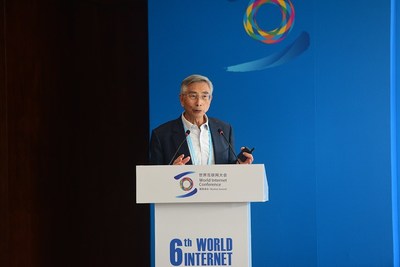PEKIN, 4 juin 2021 /PRNewswire/ — Article publié par China.org.cn.
La Chine devrait consacrer davantage d’efforts au renforcement de ses capacités en matière de logiciels open source alors qu’elle continue à développer son industrie du matériel informatique, a déclaré un expert en informatique le 27 mai.
Ni Guangnan, académicien de l’Académie chinoise d’ingénierie, a souligné l’importance de rester à l’avant-garde de la concurrence en matière de logiciels open source lors d’une allocution prononcée à Shenzhen, dans la province du Guangdong (sud de la Chine), selon un article de cs.com.cn, un site Internet géré par le China Securities Journal.

M. Ni a déclaré que les logiciels open source sont le plus largement utilisés dans l’intelligence artificielle, le big data, l’informatique en nuage (cloud computing) et d’autres technologies de pointe, et ils sont en train de progressivement remplacer les logiciels propriétaires traditionnels. Ces dernières années, la conception, la construction et la personnalisation de matériel informatique par des logiciels open source ont également gagné en popularité.
La Chine est un leader mondial dans le domaine des logiciels open source en termes de nombre de personnes travaillant et contribuant à ce domaine, a noté M. Ni. En 2019, on comptait 10,50 millions de contributeurs de logiciels open source dans le monde, parmi lesquels 3,8 millions venaient d’Asie, dont 1,18 million de contributeurs chinois, soit 31 % du total de l’Asie.
Malgré sa grande échelle, la Chine devrait également consacrer davantage d’efforts au renforcement de ses capacités en matière d’open source, a-t-il déclaré.
Ceux qui restent à l’avant-garde du développement des logiciels open source sont appelés à devenir les leaders de la prochaine génération de développement informatique, a ajouté M. Ni.
Dans une interview accordée au début du mois à weiot.net, un média axé sur l’industrie de l’Internet des objets, M. Ni a également souligné l’importance de rester à la pointe de l’industrie de fabrication avancée de puces pour rattraper les autres pays leaders.
M. Ni a déclaré que les nouvelles percées technologiques dans le nœud de 28 nanomètres (nm) et le processus plus avancé de 14 nm remonteront le moral de l’industrie chinoise des semi-conducteurs et faciliteront la croissance dans des secteurs de pointe comme les véhicules à énergie nouvelle et l’intelligence artificielle.
Compte tenu des coûts et des facteurs techniques que sa fabrication représente, la puce de 28 nm est considérée comme le point de démarcation entre les processus matures et les processus avancés.
Selon M. Ni, une fois que les puces 28 nm de la Chine seront entièrement produites localement, de nombreuses industries d’application en aval pourront atteindre l’autosuffisance et utiliser des puces fabriquées au niveau national. Cela répondra également aux besoins de la plupart des produits électroniques autres que les téléphones portables.
Il a ajouté qu’au regard de l’industrie nationale actuelle des puces, les principales entreprises se consacrent à la recherche et au développement dans chaque section, couvrant ainsi l’ensemble de la chaîne industrielle. Avec le développement rapide de la technologie, l’industrie chinoise des puces est désormais parfaitement équipée pour commencer à produire en masse des puces au format 28 nm.
Photo : https://mma.prnewswire.com/
